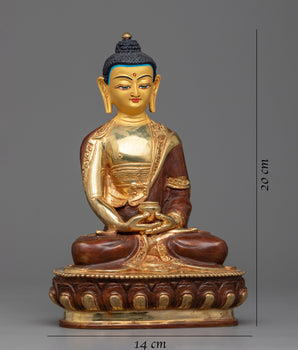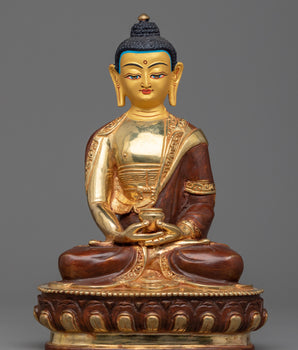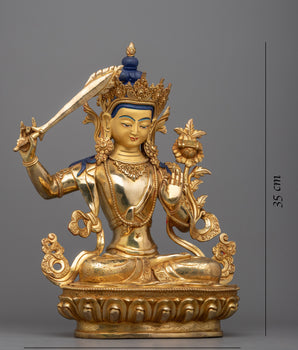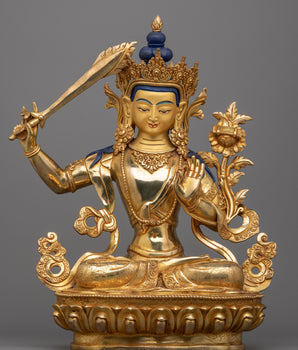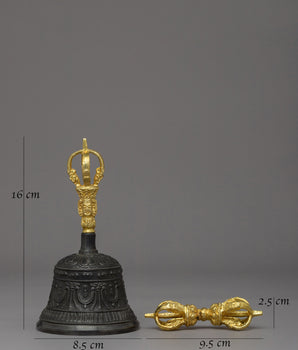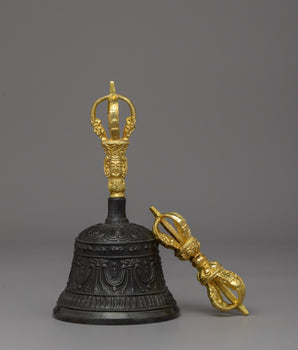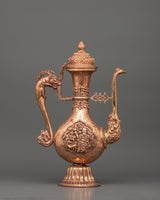
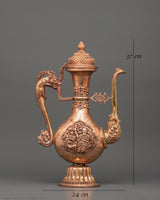
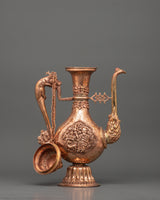
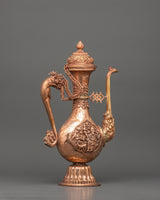
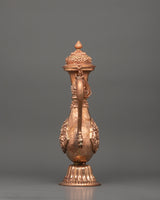
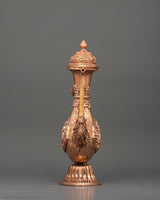
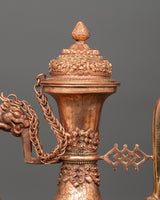
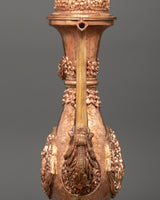
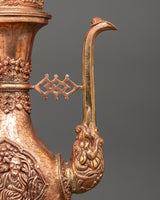
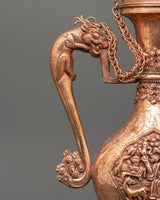
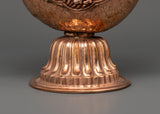
Buddhist Ritual Ceremonial Ewer | Dragon Handle & Makara Spout

100% AUTHENTIC

HANDMADE

FREE SHIPPING
Handcrafted Copper Buddhist Ewer with Traditional Floral Designs
------------------------------------------------
Size: 37cm (Height) x 24cm (Width)
Weight: 1.77kg
Materials: Copper Body
------------------------------------------------
About our Bhumpa
This Buddhist Ritual Ceremonial Ewer stands 37 cm tall and 24 cm wide and weighs 1.77 kg. It is beautifully manufactured from copper, ensuring an elegant spiritual appearance. The elaborate workmanship and floral designs engraved into the body contribute to its ritualistic significance. The copper body provides an aesthetic presence, making it an appropriate addition to holy areas, altars, or temples where spiritual rituals are performed.
The dragon handle and makara spout are rich in Buddhist symbolism, representing protection and the flow of heavenly energy. The dragon denotes strength and transformation, but the makara, a mythological monster connected with water, depicts the never-ending cycle of existence. These features, paired with the Buddhist floral motifs on the ewer, heighten its spiritual significance. This ewer is a proper ritual implement and a profound statement piece that invokes divine protection and wisdom throughout ceremonial rites.
The design of this Buddhist Ritual Ceremonial Ewer makes it an excellent alternative for people looking to improve their spiritual practice. Whether used for sacred sacrifices, temple rites, or as a valuable collector's piece, the dragon handle, makara spout, and Buddhist flower designs represent the eternal flow of wisdom and purity, making them ideal for any ceremonial or spiritual environment.
Introduction To The Ritual Ceremonial Ewer :
A ritual ceremonial ewer is a specially designed pitcher used in religious or cultural rites to pour liquids like water, wine, or oil. The ewer, which is often composed of costly materials like bronze, silver, or porcelain and decorated with complex designs or symbolic motifs, serves both a utilitarian and symbolic role in purifying, offering, or consecration rituals. Its inclusion in rituals emphasizes themes of cleanliness, holiness, and the passing of blessings, reflecting the spiritual or cultural values of the society in which it is utilized. These ceremonial devices have been discovered in various civilizations, including ancient China, the Islamic world, and medieval Europe, each imbuing the ewer with its aesthetic and spiritual importance.
How to set up your own Buddhist Shrine?
• Find a clean, quiet, and uncluttered spot.
• Set up an altar table, and cover it with an altar cloth that calls to you.
• Place your sacred item at the center.
















